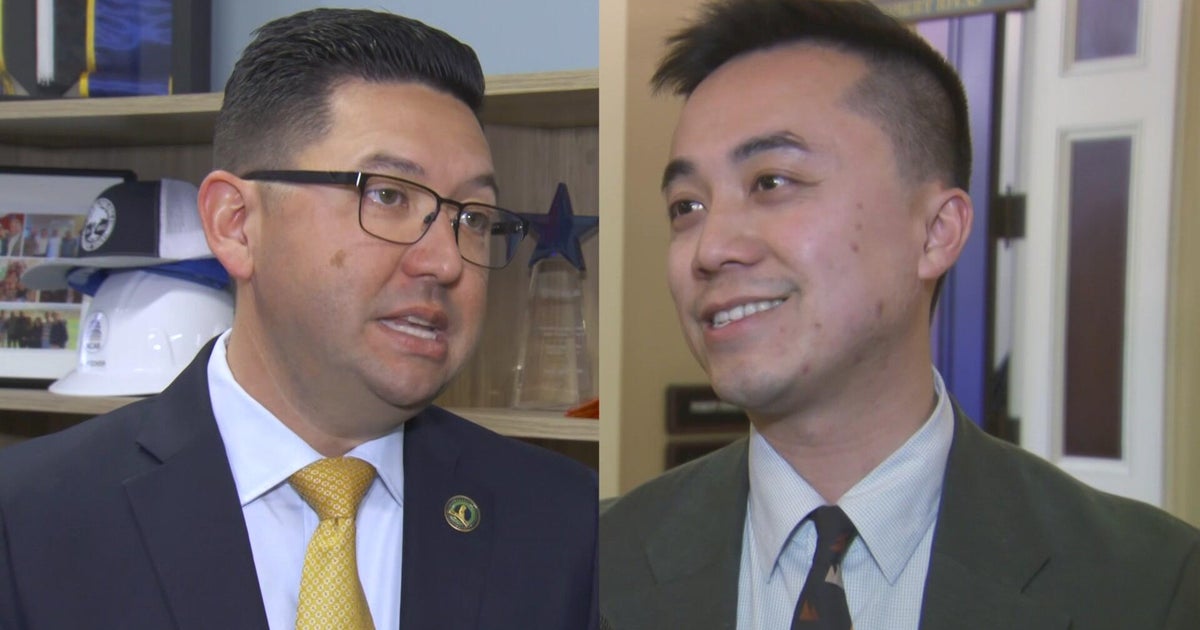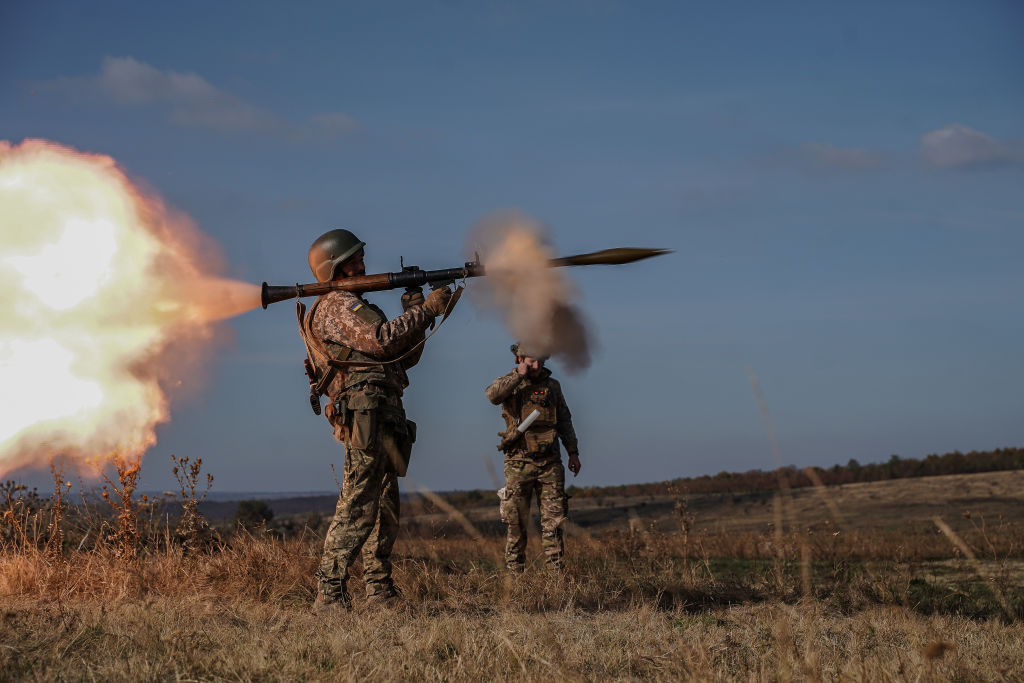Transcript: H.R. McMaster on "Face the Nation," February 27, 2022
The following is a transcript of an interview with former national security adviser and retired Lieutenant General H.R. McMaster that aired Sunday, February 27, 2022, on "Face the Nation."
MARGARET BRENNAN: We now return to the war raging in Ukraine with former national security adviser H.R. McMaster, he's now at the Hoover Institution at Stanford and with us this morning. Good to see you in person.
GEN. MCMASTER: Hey, good to see you Margaret.
MARGARET BRENNAN: So the president has made clear he does not want to put the United States in a position of going head to head with Russia. You have Ukraine's president begging for a no fly zone for some kind of military intervention. Is there any military option short of going to World War Three here?
GEN. MCMASTER: Well, there is, and that's continued support for the Ukrainians to defend themselves. And they're doing a tremendous job, obviously. But as you mentioned just in the question, the problem is Russia's control of the air, right? It's very difficult to reposition forces, to meet this multiple pronged offensive with what you call interior lines, the ability to move across one and then defeat them in detail, which is what you would want to do when the Russians control the air. And then also the sea as well. So I think there's probably a military option there to tell the Russians, 'Hey, you don't own the Black Sea.' And then also, I think, to open up commercial traffic again, to alleviate humanitarian suffering in Ukraine, as well as to keep open the land routes coming out of Poland, Moldova and Romania. To resupply, I think, the Ukrainians with weapons. And I think that's- that's very important as well. I think- I think Putin got a lot more than he bargained for. He's in a very difficult position. And I think anything we can do, obviously, financially, going after his international criminal enterprise with sanctions and so forth is important. But the support for Ukraine's ability to defend themselves is also important.
MARGARET BRENNAN: Does that mean when Kiev falls, the United States should fund and arm an insurgency in kind of a Cold War style proxy battle?
GEN. MCMASTER: Well, I think the Ukrainians are going to fight. And I think what- what Putin didn't understand is that this isn't an autocratic regime like his, right? Where it's- it's conducive to decapitation. The Ukrainian people are fighting for their freedom, they're fighting for democracy, they're fighting for one another and their sovereignty. And that just doesn't go away if he's able to seize Kyiv. And I don't think, I don't think seizing Kiev is in the cards in the immediate future–
MARGARET BRENNAN: –You don't?
GEN. MCMASTER: The next 72 hours, I think, are going to be really critical. I think what we have to look at it. When you look at the map, it's important to look at the scale, Margaret. You know, and it's really easy to look good crossing the border at the beginning of an offensive, but you begin to reach the culminating point where you run out logistics supplies, and your force gets more diffuse, and then your supply lines are open to interdiction and so forth. And so I think this multi-pronged attack that you show in the graphic, you know, it looks good on the map, on- on a chart, but it's actually quite difficult to execute.
MARGARET BRENNAN: But we heard our own David Martin lay out why that may sound reassuring, but it is also actually scary for civilians because Russia may use less precise weapons. We have seen what Vladimir Putin is willing to do in Syria. He backs a war criminal who used chemical weapons. You heard the U.N. ambassador say that's not off the table. He's threatening to potentially lean into nuclear by saying he's raising his threat level. Is Vladimir Putin a rational actor at this point?
GEN. MCMASTER: I don't think he's- he's a rational actor because he's fearful, right? What he wants to do more than anything is restore Russia to national greatness. He's driven by that. He's also driven by a desire to remain in power to at least 2036. And so I think now he knows that all of that is at risk, right? That Russia, the Russian military, doesn't look very good right now. He doesn't look very powerful. And this is going to jeopardize his ability to stay in power, you know, real wages in Russia–
MARGARET BRENNAN: –Do you really think that?
GEN. MCMASTER: –I really think that Margaret–
MARGARET BRENNAN: Why do you think that there's actually a real threat to him staying in power? I mean, he humiliated his intelligence director on television.
GEN. MCMASTER: Yeah well, that's that's a sign, isn't it? I think that's a sign when- when he had to humiliate his intelligence director on television, what does that mean? It means everybody around him is telling him what he wants to hear. He's living in a bubble
MARGARET BRENNAN: So who could stand up to him?
GEN. MCMASTER: Well, I think the Russian people could stand up to him now. The problem is that any- any of these, you know, the protests that we see, they're immediately put down. But it's worth noting, Margaret, you know, there are more people in Russia's internal security service than there are in the Russian military at this moment. What does that tell you about how security is? There are more political prisoners in Russia than there were during the height of the Cold War? What does that tell you about how security is? So I think these totalitarian leaders, they can look, you know, they can look strong, but they're actually very brittle. And, you know, democracy as we've been, you know, self-flagellation for several years. I mean, as ugly as democracy is, democracies are actually pretty darn resilient. And you see that with Ukrainians. And I hope the Ukrainians inspire confidence in all of us across the free world.
MARGARET BRENNAN: You know, I think a lot of people like to hear the optimism here, and it's kind of refreshing to hear in that way. But then you look at the international system, you served in the Trump administration, there's a lot of criticism of the international system, and parts of it, while it may be revitalized, it does look a little bit creaky. I mean, Russia is baked into the UN Security Council charter. They are vetoing–
GEN. MCMASTER: – absolutely–
MARGARET BRENNAN: –moral outrage. They have a vote in this. They can use the international system to their advantage. So- doesn't that well, fundamentally cause a problem?
GEN. MCMASTER: I mean, freedom's not easy, right? And so we have to-we have to work hard, I think, to maintain the international order that has benefited people across the world. And it's at risk now because obviously what Russia's doing. But how about the relationship with Russia and China, how they're aiding and abetting one another? I think it's really important to look at that- at the, you know, at the joint statement that was made just before the Olympics. And the call for a new type of international relations. You know what that means, Margaret, that means rewriting the rules in a way that cuts against our interests and benefits the two authoritarian regimes that are trying to dominate the Eurasian landmass.
MARGARET BRENNAN:So do you- how do you interpret Xi Jinping, the president of China's call to Vladimir Putin, to urge him to negotiate a settlement? Does that say he thinks maybe this is going too far? And is Xi Jinping the only person who can rein in Putin?
GEN. MCMASTER: He's not going to reign in Putin, and what he's- what he's doing, I think, is creating the facade of maybe being an advocate for peace, just like he's- he's always been remember –
MARGARET BRENNAN: –because the White House would say, 'Oh, look, China is afraid of secondary sanctions. Even China is now afraid of the world standing up to Russia.'
GEN. MCMASTER: Well, there might be afraid of secondary sanctions, and they might- they might get them. I think they deserve them actually for aiding and abetting Russia. What- what Russia, and David will be able to talk more about this than I can, but they've been trying to insulate themselves right, from- from economic sanctions and and they're doing it in cooperation with one another, right? He's trying to reduce his vulnerability to the restrictions on- on his access to the dollar economy by buying yuan. China has- has pledged to buy even more and more oil and gas from Putin. And I think what we have to do next, we have to figure this out, Margaret, is we have to sanction the hydrocarbon sector. I mean, we have to do it. We have to do everything we can maybe to- to buffer the effect of that. But- but I think Europe, Germany in particular has to realize they made a big, big mistake when they gave Russia coercive power over their economy. And so we have to make major adjustments to the energy infrastructure globally.
MARGARET BRENNAN: So I spoke to Kurt Volker, former envoy to Ukraine. He said to me, when you have a balance of forces, you have strength. Both sides have a reason to settle through diplomacy. When it's only one side imposing its will by force. Diplomacy is capitulation.
GEN. MCMASTER: It's absolutely right.
MARGARET BRENNAN: So should Volodymyr Zelensky do anything to negotiate at this point?
GEN. MCMASTER: Well, I don't think he has to. I think again, this next 72 hours are going to be really important. Russia's initial aims have been frustrated that the military problem gets harder and harder for them as they extend their lines of communication supply lines. If you look at the numbers of forces, you know, it looks like a lot, you know, 160 thousand. OK, what about one third of that is combat troops. Now you divide it across four different axes. You know, it's pretty easy for that force to become dissipated and become absorbed into the vast territory of Ukraine, a country of 40 million people that occupies a space of Texas, right? So I think that this is an impossible military problem for him if his aim is to not only remove Zelensky from power, but then to control Ukraine. He won't be able to control Ukraine.
MARGARET BRENNAN: Thank you very much. H.R. McMaster, we'll be back in a moment.



